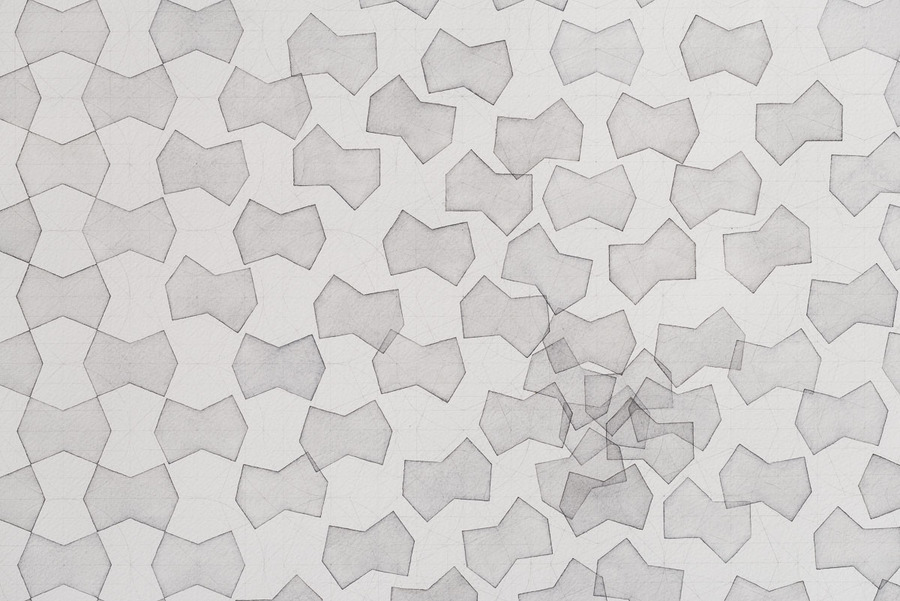Exhibitions
Index / Activities / Exhibitions / “Fugitive,” an exhibition by Nicène Kossentini
“Fugitive,” an exhibition by Nicène Kossentini
From October 20, 2016 until February 14, 2017 From October 20, 2016 through January 17, 2017 Mondays-Fridays (from October 20-31), from 11:00 a.m. to 6:30 p.m. As of November 1, from 10:00 a.m. to 2:00 p.m. and from 4:30 to 8:00 p.m.
CóRDOBA
Casa Árabe headquarters (at Calle Samuel de los Santos Gener, 9).
From October 20, 2016 through January 17, 2017 Mondays-Fridays (from October 20-31), from 11:00 a.m. to 6:30 p.m. As of November 1, from 10:00 a.m. to 2:00 p.m. and from 4:30 to 8:00 p.m.
Free entrance.
This exhibition will be held at the Casa Árabe’s headquarters in Cordoba from October 20, 2016 through January 13, 2017
Casa Árabe, with the cooperation of Sabrina Amrani, is presenting Fugitive, a series of works by Tunisian artist Nicène Kossentini, resulting from an artistic residency which the artist completed at Casa Árabe’s headquarters in Cordoba from October 18-31, 2015. The project, which marks Kossentini’s return to drawing and watercolor painting, largely uses Islamic geometrics and the aesthetics of its architectural ornamentation, inspired by the Cordoba Mosque.
Fugitive distances itself from classical Islamic design. It goes beyond just delving into the decorative structures of Al-Andalus from a purely theoretical perspective and the use of these elements in a formal manner alone, instead focusing on an existential search in which Nicène poses questions about the contradictions and mutability of life and memory.
Inspired by the liquid aspect of water, the works move between motion and introspection. Created through extremely immersive processes, they speak to us about constant change, absence and loss. Similarly, the pieces which make up the work as a whole define water (as a living element) as a way to record memory, in the form of vibrations in which the element of water binds together and grows isolated, both preserved and rejected.
As a result, the video and drawings displayed in the exhibition are seen in a state of constant change. They can be viewed separately or as an ensemble, because they resonate in unison, like an unknown musical score. Against the tendency in her usual creative process, Kossentini has chosen to follow her intuition freely through drawing, as a need.
Kossentini (1976) recently held a retrospective solo exhibition in Muratcentoventidue, Bari (Italy) and was nominated for the Abraaj Art Prize of 2016. Her most recent group exhibitions have included The Divine Comedy: Heaven, Purgatory and Hell Revisited by Contemporary African Artists, curated by Simon Njami at the National Museum of African Art (USA) and at the Museum für Moderne Kunst in Frankfurt am Main (Germany); Effervescence, curated by Michket Krifa at the Institut des Cultures d’Islam (France); Songs of Loss and Songs of Love, curated by Sam Bardaouil and Till Fellrath at the Gwangju Museum of Art (South Korea); Still Fighting Ignorance and Intellectual Perfidy: Video Art from Africa, curated by Kisito Assangni at the Kunsthalle São Paulo (Brazil), at the Angelholm International Video Art Festival (Sweden) and at the Pori Art Museum (Finland), and El Iris de Lucy (Lucy’s Iris), curated by Orlando Britto-Jinorio at the MUSAC in León (Spain), at the Musée Departemental de Rochechouart (France) and at the Centro Atlántico de Arte Moderno (CAAM) in Las Palmas de Gran Canaria (Spain) in January 2017. She has also taken part in many different festivals and biennials, including the Rencontres de la Photographie Africaine in Bamako (2007), the Tunis Biennial (2008), the Alexandria Biennial (2009) and the Thessaloniki Biennial (2009). Nicène’s work has recently been acquired by the British Museum and is present in public collections such as that of the Fondation Blachère (France), Sindika Dokolo Foundation (Angola), Kamel Lazaar Foundation (Tunisia) and Museum of Modern Art (Tunisia).
Casa Árabe
Sabrina Amrani

